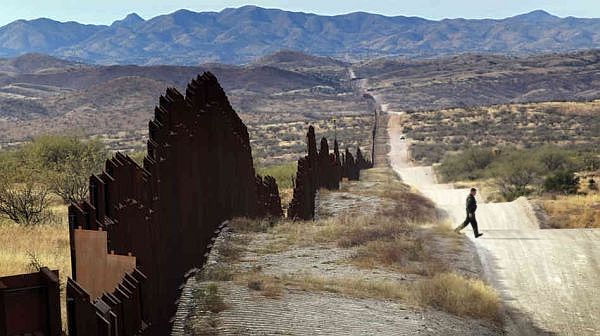Agua Prieta, Sonora — The business of smuggling people across the border is going high-tech. Rather than paying a guide to lead them across the Southern Arizona desert, migrants are hiring smugglers who watch from nearby hilltops and tell them via cellphone when to run, when to stop, when to hide and when to crawl.
In places such as Naco, near Bisbee, and Agua Prieta, which abuts Douglas, the use of cellphones to guide migrants started about five years ago. Already, more than three-quarters of migrants who go through the local shelter or resource center are choosing that option, said Adalberto Ramos, who coordinates both places.
 |
This year, people who work with migrants said they are hearing stories about women taken to a bridge near the Mariposa Port of Entry and held there, sometimes for days, until their smugglers tell them it's safe to cross.
The shift from live guide to cellphone is happening even though it's more expensive — up to $7,000 versus roughly $3,500 to be led through the desert. That's because it's supposed to be a shorter and safer walk to the city from the border fence, which they jump with a ladder and rope.
The shift from live guides to cellphones came along with the buildup of agents in the Tucson Sector, from 282 to more than 4,000 in the last 20 years.
The Border Patrol doesn't specifically track the use of cellphones to guide border crossers, but it does acknowledge the tactic.
"Smuggling trends continually change throughout the Tucson Sector, and this style of cellphone guiding is no different," the agency said in a written statement."As Tucson Sector prosecution efforts continue to disrupt and dismantle smuggling organizations, smugglers will attempt to modify their tactics to elude apprehension and subsequently, prosecution."
"The smugglers don't want to risk getting caught, perhaps because they already have too many convictions or apprehensions," said Ramos, the coordinator of the Agua Prieta migrant shelter.
Ramos said they first started to see this new strategy in 2010, when his group's attorney would interview migrants accused of being smugglers. The so-called coyotes would give one migrant a phone to lead a small group, so Border Patrol agents would assume that person was the smuggler, not a border crosser.
Now, smugglers also guide individuals on cellphones much closer to urban areas, where they can see them from nearby hilltops. Migrants are told it's safer to be guided by cellphone, but in reality many of them are caught immediately after crossing. By the time they show up at the center or at the shelter, Ramos said, they've already lost about $1,000 and realize they've been ripped off.
Read more at Tuscon.com.


